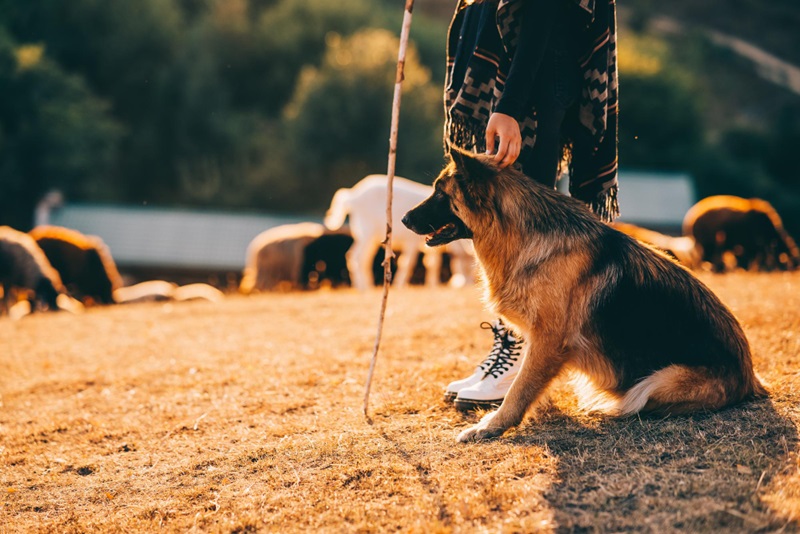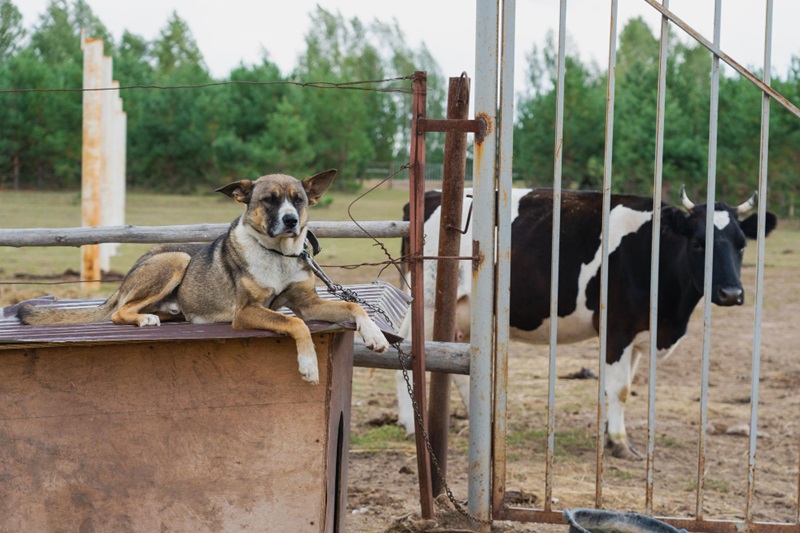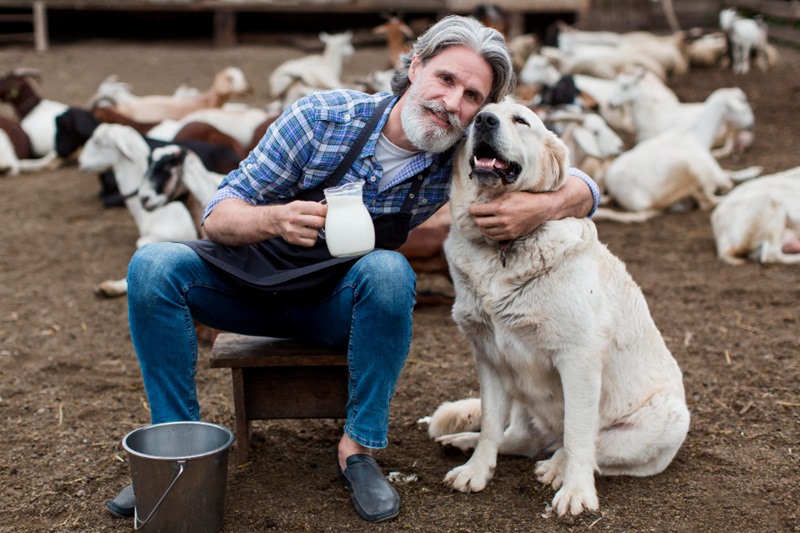Dogs have been safeguarding livestock for centuries, acting as reliable protectors against predators and intruders. Farmers and ranchers rely on their instinct, intelligence, and loyalty to keep animals safe in pastures and enclosures. These guardians are more than pets; they are partners in maintaining the balance between livestock and the threats they face. From sheepdogs to specialized guardian breeds, their roles have evolved with time. By understanding their roles, training methods, and the advantages they offer, we can appreciate their unique contributions to agriculture. These hardworking companions not only reduce risks but also promote a sense of security for animals and their caretakers.
What Makes Dogs Ideal for Livestock Protection?
Natural Instincts
- Guardian breeds like Great Pyrenees and Anatolian Shepherds have inherent protective instincts.
- They are bred to recognize threats and react quickly to protect livestock.
- These dogs are fearless and can stand their ground against predators like wolves or coyotes.
Adaptability
- Livestock guardian dogs are resilient and can adapt to harsh climates.
- Their thick coats and sturdy builds enable them to work in extreme conditions, whether in snowy pastures or arid landscapes.
- They integrate seamlessly into the herd, forming bonds with the livestock they protect.
Intelligence and Training
- These dogs are highly intelligent and quick learners.
- Early training helps them differentiate between predators and non-threatening animals.
- Obedience and behavioral conditioning ensure they stay focused on their role.
Key Roles of Livestock Guardian Dogs
Protection Against Predators
- Livestock guardian dogs deter predators through their presence and bark.
- They patrol boundaries and keep constant watch, ensuring the safety of sheep, goats, or cattle.
- In many cases, predators avoid areas guarded by these dogs.
Bonding with Livestock
- These dogs form a close bond with the animals they protect.
- They spend most of their time with the herd, ensuring they are always on alert.
- This bond creates a sense of trust, reducing stress among the livestock.
Minimizing Losses
- Guardian dogs significantly reduce livestock losses due to predation.
- They also prevent financial losses for farmers by ensuring animals remain safe.
- This proactive approach contributes to a more sustainable livestock management system.

How to Train Livestock Guardian Dogs
Early Socialization
- Start training when the dog is a puppy, exposing it to livestock at an early age.
- Familiarize the pup with the sights, sounds, and smells of the animals it will protect.
- Avoid over-socialization with humans to ensure the dog bonds primarily with the livestock.
Boundary Training
- Teach the dog to patrol the perimeters of the area it needs to protect.
- Use consistent commands and reward positive behavior.
- Gradually increase the area the dog monitors as it grows confident.
Reinforcing Desired Behavior
- Praise and reward the dog for staying close to the herd.
- Correct inappropriate behaviors, such as chasing or being overly aggressive with livestock.
- Regular reinforcement helps the dog stay focused on its role.
Choosing the Right Breed for Livestock Protection
Great Pyrenees
- Known for their calm demeanor and strong protective instincts.
- Ideal for guarding sheep, goats, and cattle.
Anatolian Shepherd
- Powerful and alert, with excellent guarding abilities.
- Suitable for larger livestock operations.
Akbash
- Gentle with livestock but aggressive toward predators.
- A dependable choice for mixed-species herds.
Benefits of Using Dogs in Livestock Management
Cost-Effective
- Using dogs reduces the need for expensive fencing or other predator control methods.
- Once trained, they require minimal maintenance costs.
Environmentally Friendly
- Livestock guardian dogs provide a non-lethal way to manage predators.
- They help maintain ecological balance without harming wildlife.
Stress Reduction in Livestock
- Animals feel more secure when a guardian dog is present.
- This sense of safety can improve their overall health and productivity.
Challenges in Livestock Protection with Dogs
-
Initial Training Time
Proper training requires time and patience, particularly during the dog’s first year.
-
Managing Aggression
Untrained or improperly socialized dogs may exhibit aggression toward livestock.

-
Veterinary Care
Regular health check-ups, vaccinations, and parasite control are essential to keep the dogs effective.
FAQs About Livestock Guardian Dogs
- What breeds are most effective for livestock protection?
Breeds like Great Pyrenees, Anatolian Shepherd, and Akbash are widely recognized for their protective traits. - Do livestock guardian dogs need specialized training?
Yes, proper training is essential to help them bond with livestock and effectively deter predators. - Can these dogs protect multiple types of livestock?
Yes, they can guard mixed-species herds, including sheep, goats, and cattle. - How do these dogs handle extreme weather conditions?
Their resilience and thick coats allow them to work in a variety of climates, from cold winters to hot summers. - Are livestock guardian dogs a humane solution for predator control?
Yes, they provide a non-lethal way to deter predators while maintaining ecological balance.
Secure Your Livestock with Trusted Guardians
Livestock guardian dogs play a vital role in protecting animals and ensuring the success of farming operations. Their natural instincts, adaptability, and intelligence make them indispensable in managing livestock safety. Choosing the right breed, providing proper training, and understanding their needs are crucial for maximizing their effectiveness. By fostering a harmonious relationship between livestock and their guardians, farmers can achieve a sustainable and secure farming environment. These dogs are more than guardians—they are trusted allies in safeguarding livelihoods.

